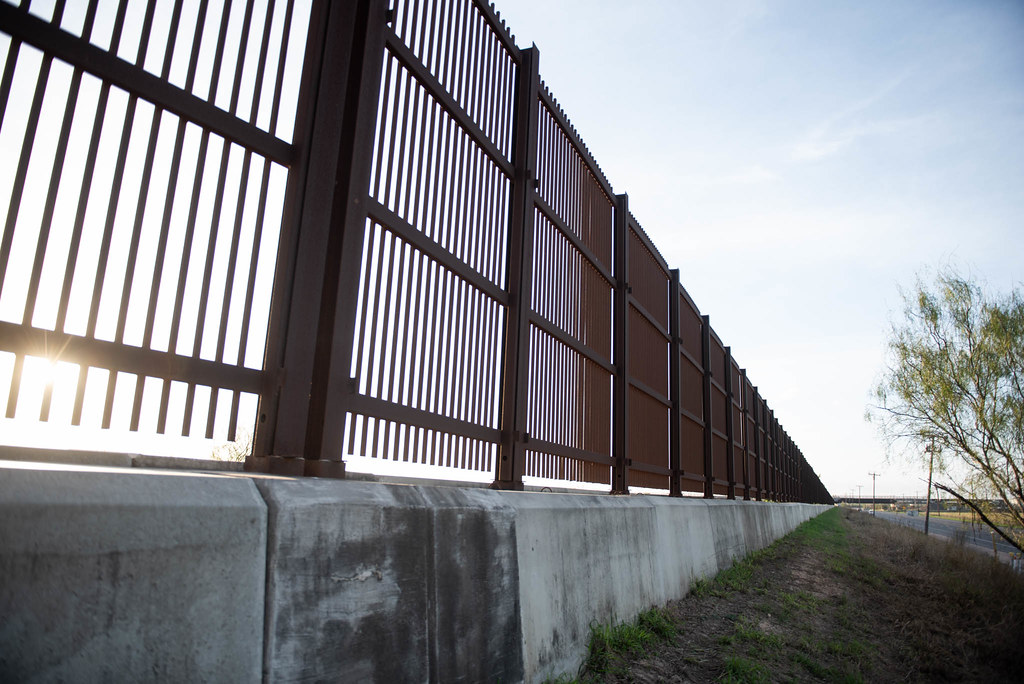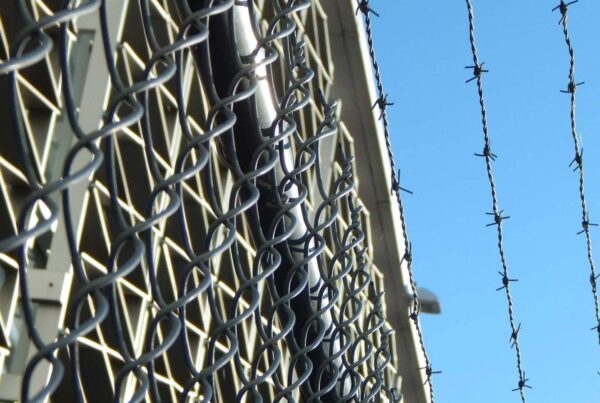For some, immigration trends at the southern border constitute a crisis. For others, it’s more of an opportunity.
The federal government annually awards billions of dollars to border security companies – firms that sell all kinds of equipment that will ostensibly make it easier to stem the illegal flow of drugs and people without documentation across the border.
The latest of these technologies were on display in El Paso last month at the 16th annual Border Security Expo. Todd Miller, a reporter for The Border Chronicle based in Arizona, attended the expo, and spoke to the Texas Standard about what he saw.
This transcript has been edited lightly for clarity:
Texas Standard: First, describe the scene. Set it up for us: Where were you exactly, and what did it look like?
Todd Miller: Well, I was in El Paso, Texas, at the convention center in El Paso. And the Border Security Expo is basically two parts: One is a conference where lots of high brass from the Department of Homeland Security and its different agencies – particularly Customs and Border Protection, which is the agency over the Border Patrol – were present. As well as nearly 200 private companies who were displaying their wares in a big exhibition hall.
Wow. So the customer in this case would be what, basically the government? I mean, are all these vendors trying to get the government’s attention?
Yeah. And basically, it’s almost like witnessing a conversation between the government and industry. So you see this kind of back-and-forth. There’s all kinds of workshops and talks, and it turns into back-and-forths and conversation between industry representatives and officials within the U.S. government, and particularly Department of Homeland Security. And you kind of witness these back-and-forths, and you also witness the government articulating what types of technologies they would want in the future on the border.
So what exactly were they telling these vendors, and what did you see on that exhibition floor?
Well, on the exhibition floor, you see a lot of what I would say are the trends: That would be a lot of robots, for example, or, you know, what people call drones or unmanned vehicles. A robotic dog, for example, was on display by a company called Ghost Robotics.
There’s also high-powered surveillance towers like autonomous towers from another company that’s gotten a lot of contracts from the U.S. Border Patrol called Anduril. You see just kind of this range of technologies being displayed and a lot of talk about artificial intelligence – you know, there’s a sort of this new sort of thinking and trend in the direction of AI.
How would you characterize the Biden administration’s spending on border security so far? Are they spending more or less than previous administrations, or is there a way of spotting a difference?
They are spending more. This year, the budget, if you combine Customs and Border Protection with Immigration and Customs Enforcement, it’s $29.8 billion. That’s nearly a $3 billion jump from the year before. And if you want to compare it to the Trump administration, it’s much higher than the Trump administration. I think the Trump administration ended with about a $25 billion budget with those two agencies. So we’re seeing a significant budgetary jump with the Biden administration.
So as you look at, you know, what you saw at the expo and you think about what you have actually observed reporting at the border, how do you envision things changing and as a result of this sort of border security industrial complex, It sounds like?
It seems like that is something that often isn’t on the table when we’re discussing the border or immigration enforcement – that there is this large contingent of companies that are getting contracts and really, you know, getting revenue from border enforcement. And that sort of money interests, it really does need to be discussed, because the companies that do get the contracts, they have a lot of say in Washington; they’re able to get behind closed doors.
A lot of these companies are able to, you know, give campaign contributions to key politicians. They’re able to lobby when there’s appropriations discussions going on in Congress and that sort of thing. So those sorts of things and how they affect policy and how they keep policy in place really should be on the table, really should be something that I think people should be discussing more.















